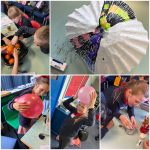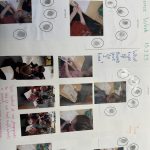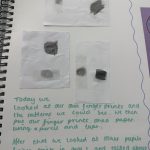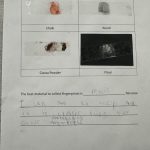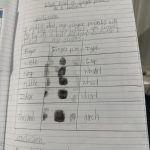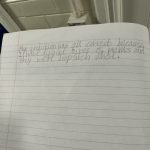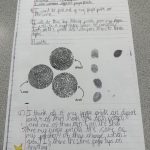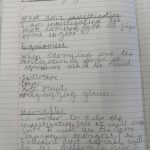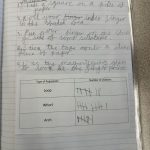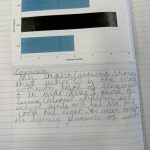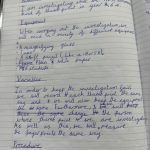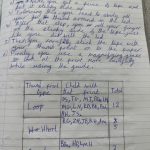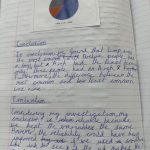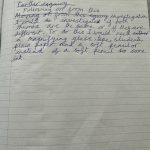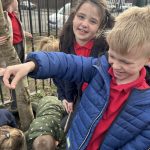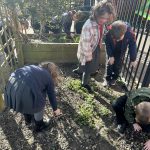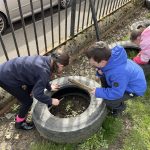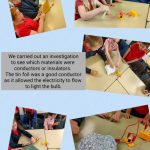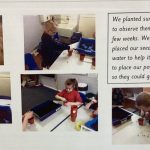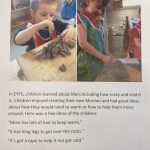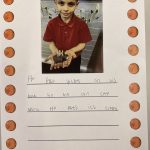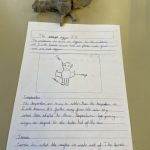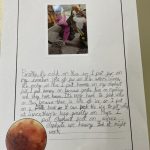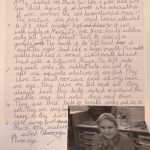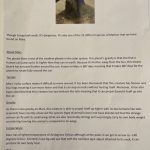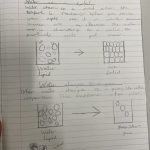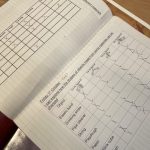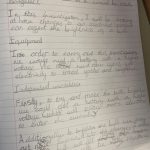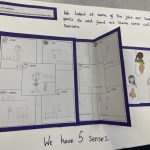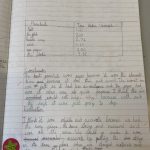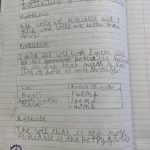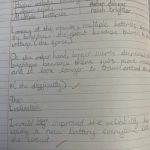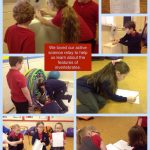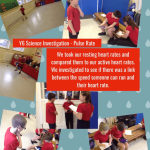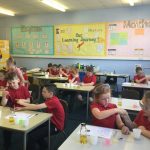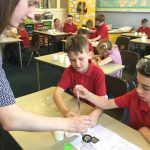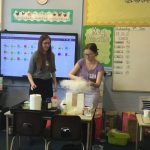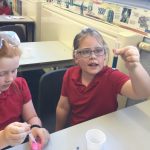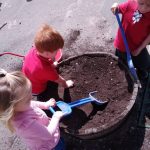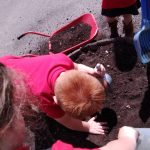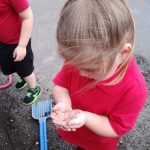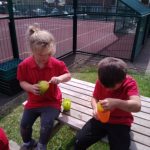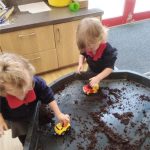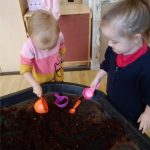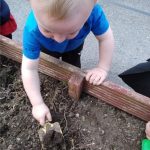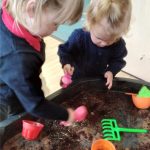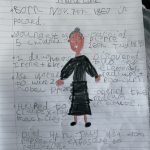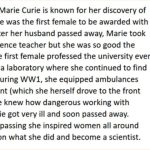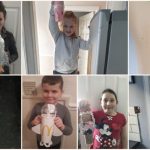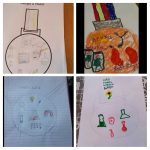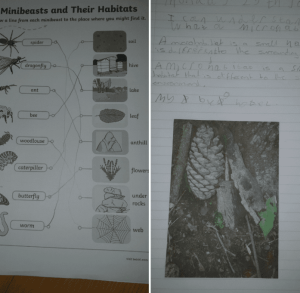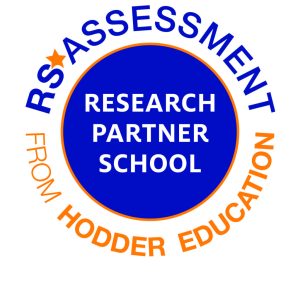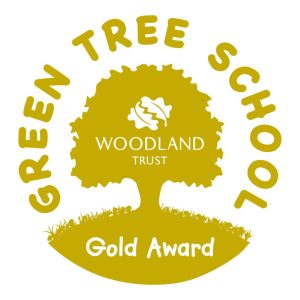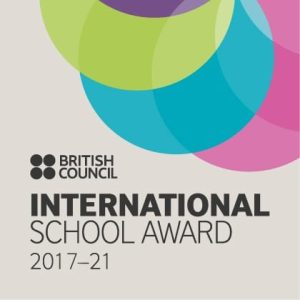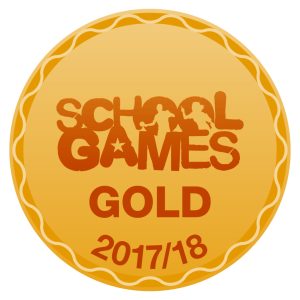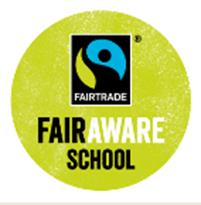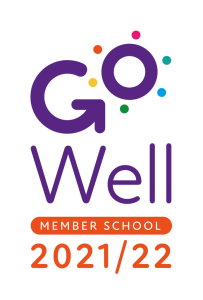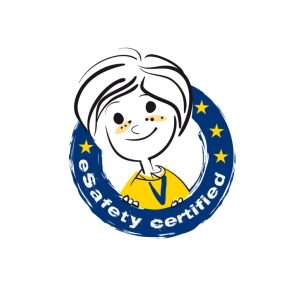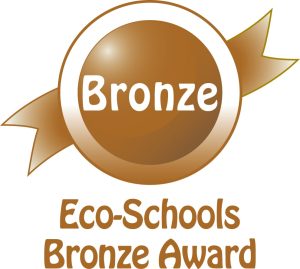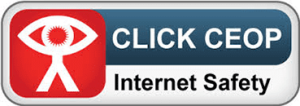Archived work from 2022-2023
Science Ambassadors
Our science ambassadors spent the day at a training event, learning about new experiments and developing their presentation skills. The girls can’t wait to share what they have learned in school at the new science club!
Science Week 2023
‘In Year 2 the children have been investigating minibeasts that can be found in our local habitat, as part of our unit on ‘Living Things and their Habitats’. The children found a range of different minibeasts and recorded their findings in a tally chart. Back in the classroom the children represented their data in a pictogram.’
Science Curriculum 2021-2022
Long Term Planning
Planning
LTP Science 2020-21 (Re-start Curriculum)
The following areas are covered during children’s time at our school:
To Work Scientifically by:
- Asking questions
- Measuring and recording
- Concluding
- Evaluating
To learn about life processes and living things (Biology)
To learn about materials and their properties (Chemistry)
To learn about physical processes (Physics)
Year 1 – Working Scientifically
Year 2 – Working Scientifically
Year 3 – Working Scientifically
Year 4 – Working Scientifically
Year 5 – Working Scientifically
Year 6 – Working Scientifically
2021-2022
Science from around the school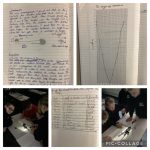
Year 6 explored how the position of a light source, the sun,
can effect the length of shadows.
Year 5 have investigated ways to separate mixtures and
recover a substance from a solution!
Year 3, investigated how the amount of force used can affect movement.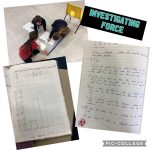
For science week, we have been thinking about what living things need to grow and how a creature might need to look to survive on Mars! Children learned key information about Mars and in some years thought about how animals on this plant have adapted to suit their environment. Everyone created their own Martian out of clay and craft materials and children were able to explain how their creature brilliantly!
Half Term Science Packs
For autumn half-term, Durham University provided all our KS2 children with science activity packs! The pack was full of activities and resources for children to carry out their own investigations about things like light, sound and static electricity. Children have given feedback on the activities and it has all been really positive:
“It was great to use knowledge I had learned in school for the activities.” Amealia (Year 6)
“I liked the pack because I liked the problem-solving.” Leah (Year 5).
“It was fun and I learned new things!” Luke (Year 4)
“All the activities were good!” Priya (Year 3)
Science investigative work from across the school.
Highlights from 2019-20
- Invertebrate relay
- Pulse Rates
Science Week
- Science Week – Year 1
- Science Week – Year 2
- Science Week – Year 3
- Science Week – Year 4
- Science Week – Year 5
- Science Week – Year 6
Science Ambassadors
The Science Ambassadors are part of a programme provided by the Ogden Trust as a way of getting girls excited about science and offers them an opportunity to take ownership of the subject.
This year the ambassadors have played a key role in the final developments of the Phizlab at Chilton Academy, where they have been to work with real scientists. Our ambassadors have also took the lead in an after school science club for year 2 children where they have been aiming to get other young children excited about science. They have also led whole school assemblies to talk about the work they have done.
Science in Action at Dean Bank
Year 3
The children in Year 3 became witches and wizards and took part in a potions class at Hogwarts school of Witchcraft and Wizardry. They observed experiments such as an erupting volcano and a witches cauldron. As well as creating their own lava lamps and colour changing cabbage cordial. They had lots of fun!
EYFS
Our 2s have been doing some digging and planting of sunflower seeds with Mrs James. They have also explored the soil within the class and moved the cars in various ways through the mud.
Nursery and Reception have also done some re-planting of the sunflower that we had in our classroom. We talked about why the sunflower had to be moved and what it will need to grow. Nursery children particularly took an interest in this.
Reception and 30 hour nursery children also made ice lollies as part of our maths when we talked about empty, half and full. We ate them outside on a sunny day, and the children noticed changes in their ice lolly. They asked lots of questions about why it was melting and how we could make it ice and freeze again. Children talked about seasonal changes and that if we put the ice lolly in the snow, it would become ice again but that a hot, sunny day makes it melt.
Pete Edwards talk – 09/03/2020
Today we went to Chilton Academy Phiz Lab to learn about space with Pete Edwards from Durham University. We looked at pictures of the Galaxy and a lot of different planets.
We asked questions to Pete, learning about how hot the Sun is, how the Moon rock is the same as the rocks on earth as well as how gravity on the moon is 8 times weaker than the gravity on Earth. Pete showed us photos of how big the Sun is compared to other planets. He said you could fit 110 Earths along the diameter of the Sun and millions inside.
We also learned that in a lot of years, the sun will eventually burn out, eating the Earth and dissolving.
By the Science Ambassadors
National women and girls in science day
To celebrate this event, we learned about women who had a big impact on world and science. Many classes learned about Marie Curie and her work and how it has helped people over the years! As well as this, we had a competition to design and build space capsules to land an astronaut (egg) safely to celebrate the achievements of Valentina Tereshkova – the first woman in space.
Year 1 Plants
In the past few weeks, we have been exploring plants! This has included looking at how they grow and identifying deciduous and evergreen trees. It was easy to spot them outside in winter!
Year 2 Habitats
In year 2, we have been looking at living things and their habitats! We have learned about micro-habitats and the animals we might find living there. Also, we have looked in our gardens and the local environment for different habitats too.
Year 3 Remote Learning

Year 5 Space
In year 5, we have been learning all about space! We looked in more detail at our solar system and the way different bodies move including the Earth and moon. We have also explored the reason for day and night and how the Earth’s rotation causes this.
Year 6 Remote Learning
 We have continued to learn about living things and their habitats. We have learned about using classification keys and classified a range of plants and animals based on specific characteristics. Also, we have looked in more detail at micro-organisms and found out more about the man behind the classification system – Carl Linnaeus!
We have continued to learn about living things and their habitats. We have learned about using classification keys and classified a range of plants and animals based on specific characteristics. Also, we have looked in more detail at micro-organisms and found out more about the man behind the classification system – Carl Linnaeus!
In year 1 we have explored the different senses the best way we can… by using them! We used sight, sound, taste, touch and smell to investigate different objects.
Y3 rocks and soils – Oct 2020
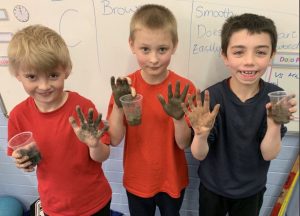
Y3 got their hands very dirty when comparing different soils.
By the end of the lesson, the children were able to comment on the colour and texture of different soil samples.


